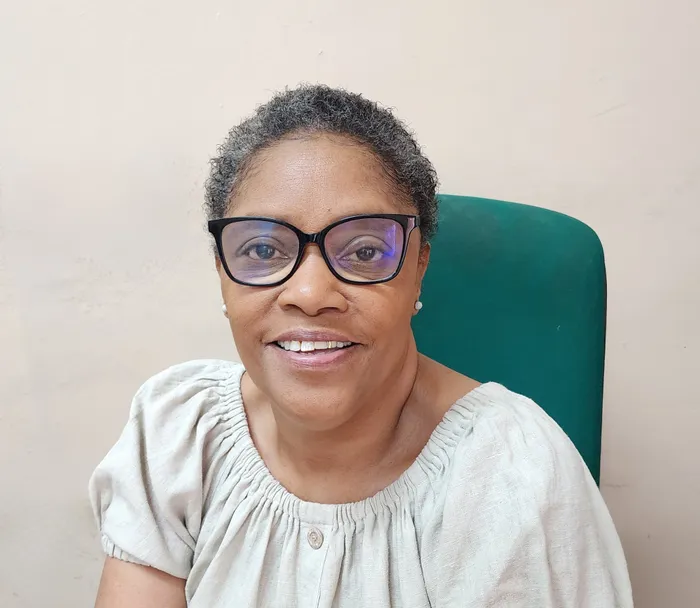Surviving HIV/Aids diagnosis: a journey of hope

Aids Healthcare Foundation patient advocate, Jennifer Sharon Boyce, shares her story of diagnosis and survival.
In the late 1990s, Jenny Boyce’s life took a dramatic turn when a routine blood test for life insurance revealed the unimaginable—she had HIV.
“I remember the doctor saying, ‘You have Aids,’ and I just blanked out,” Jenny reflects.
This was during a time when stigma, fear and discrimination surrounding Aids were rampant, and the diagnosis felt like a death sentence.
As a community activist dedicated to HIV prevention, Jenny was suddenly faced with the harsh reality she had been working to help others avoid.
“I immersed myself in my work, supporting people dying of Aids while ignoring my own diagnosis,” Jenny said.
Despite losing family members to the disease, each loss serving as a stark reminder of her own prognosis, she chose not to confront her illness. Her denial persisted until her health deteriorated —she developed tuberculosis and pneumonia and found herself hospitalised, in a critical condition.
“I should have died then,” she recalls. “But it wasn’t meant to be. After ten days in a non-responsive state, the doctors sent me home to die with dignity, but my family fought to keep me alive.”
During this period, Jenny’s path crossed with the Aids Healthcare Foundation (AHF). At a time when antiretroviral therapy (ART) was scarce in South Africa, particularly for those without financial means, AHF became a beacon of hope.
“When I learned about AHF, I signed up immediately. Diane Hoorsuk (AHF board member), who was involved with AHF and lived in my community, urged me to go to the clinic for treatment,” Jenny recalls.
In March 2002, both Jenny and her husband began their treatment at the AHF Ithembalabantu (The People’s Hope) clinic in Umlazi.
Jenny vividly remembers her first visit to the clinic.
“I was extremely ill, and when I walked into that clinic, it felt like my last hope. The room had a smell of death, and I was anxious and parched. But when our names were called, we were greeted with such kindness, empathy, and love that I immediately felt a glimmer of hope,” Jenny said.
The transformation was swift — her energy levels improved, her skin condition began to heal, and as she puts it, “the rest is history.” More than 22 years later, Jenny is a survivor.
Reflecting on her journey, Jenny highlights the profound impact AHF had not just on her health but on her entire outlook on life.
“AHF changed my perception of healthcare workers and people living with HIV. My journey of a second life, a second chance, began there. It wasn’t just treatment; it was care, hope, and joy in that room. I am eternally grateful.”
Being patient 21 of over 2 million people whose lives have been transformed by AHF is a point of pride for Jenny.
“It means everything,” she said. “At that time, there was so much confusion and uncertainty about antiretroviral therapy. Even when treatment became available, it was often inaccessible due to costs. So, walking into the clinic at Umlazi felt like my last hope. I wanted to live. I was desperate to stay alive.”
Jenny’s experience with AHF also reinforced her commitment to her community. As a lifelong activist, she continued to support others living with HIV, now with a renewed focus.
“I use my story to encourage others. I want to tell people that testing and starting treatment can save your life,” she said.
Through her advocacy, Jenny became a trusted figure in her community, helping others navigate their own journeys with HIV.
“People were looking for someone they could trust with their own stories, and I could refer them to AHF for quality care, regardless of affordability.”
As a grandmother, Jenny continues to live out her purpose, inspired by her family.
“I have a 20-year-old grandson and recently welcomed a new granddaughter. My family sees my determination every day. I may struggle with energy, but I make the most of every waking hour. I serve with humility and lead with confidence,” she said.
Jenny’s story is a powerful testament to the resilience of the human spirit and the transformative impact of compassionate, accessible healthcare. Her message to women, especially those living with HIV, is one of empowerment: “Love yourself so fiercely that nothing could cause you harm — by yourself or others. Disclosure is freedom. Own your status, walk in confidence, and close the gap on stigma. AHF gave me that lifeline, and for that, I am eternally grateful.”